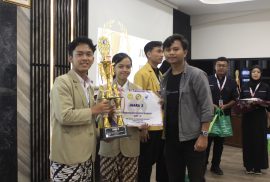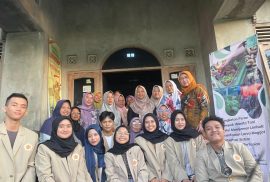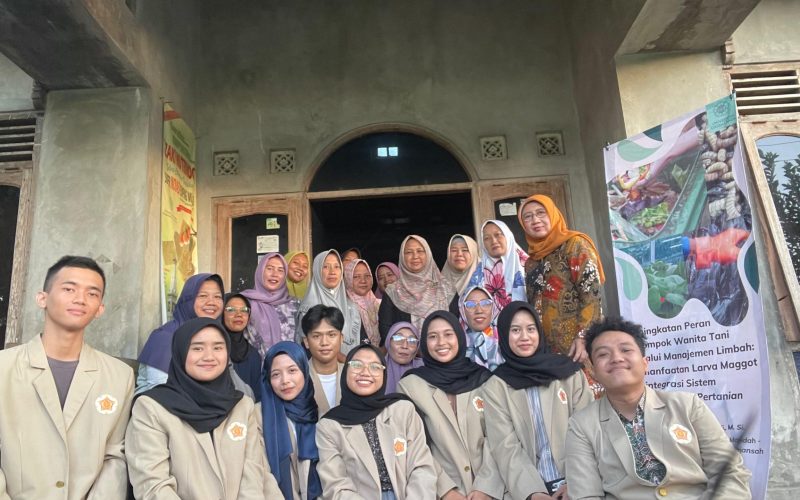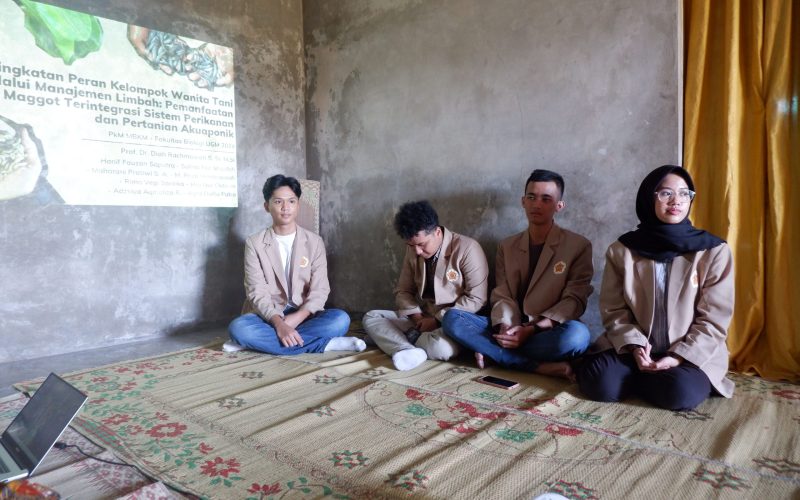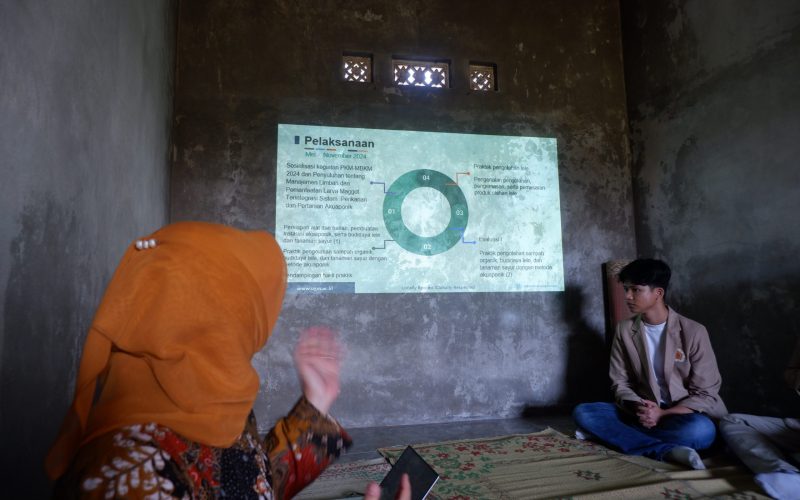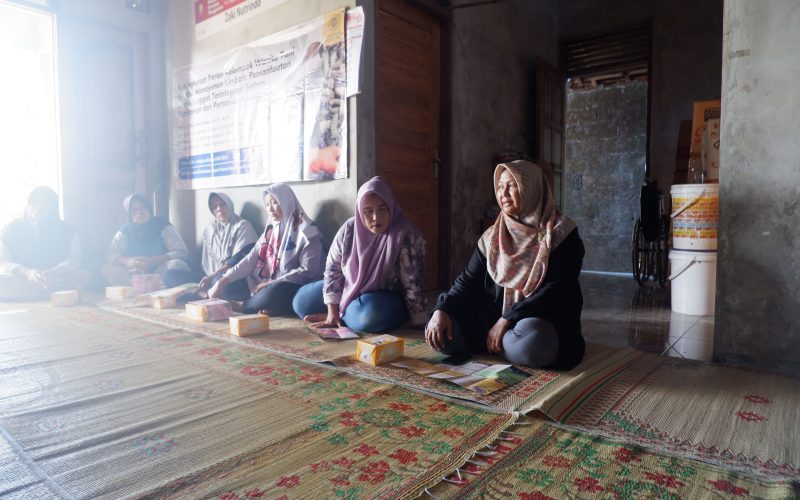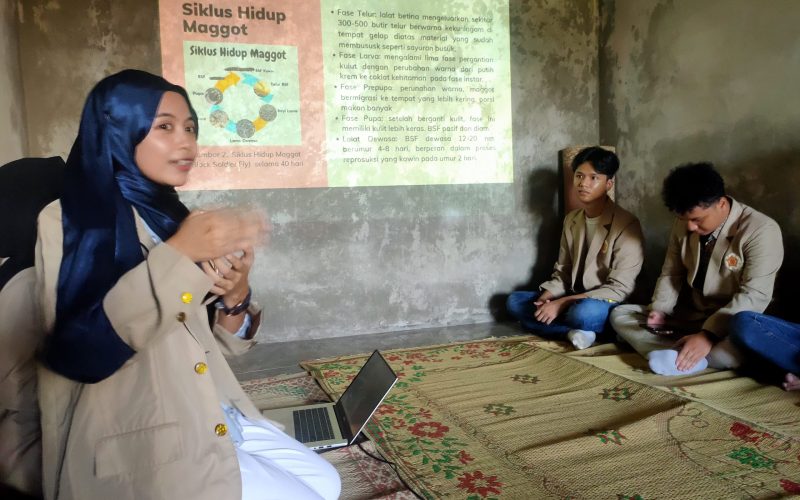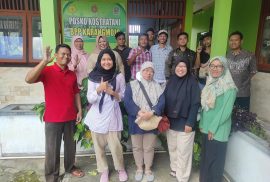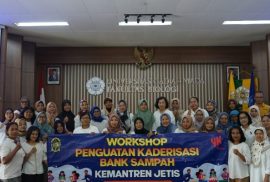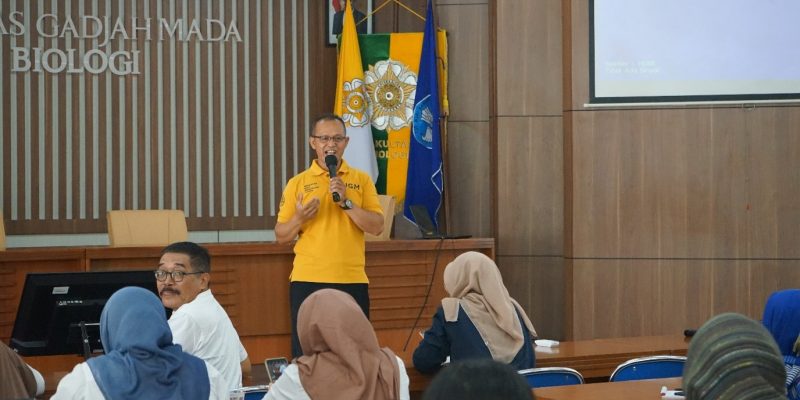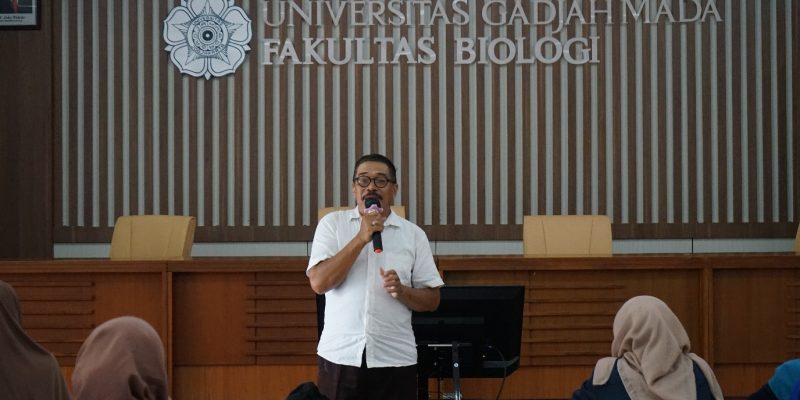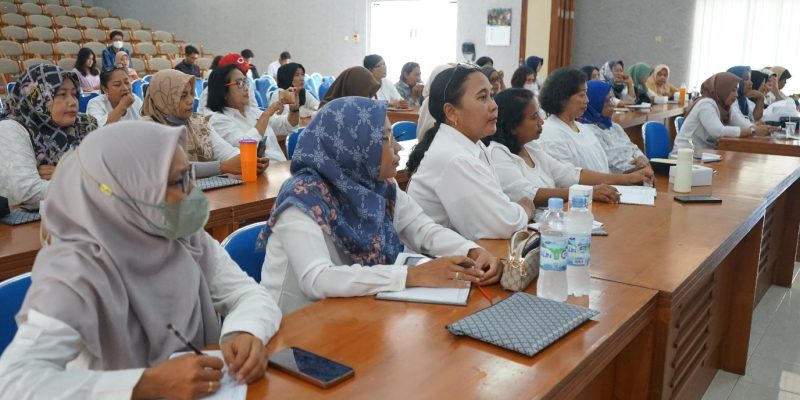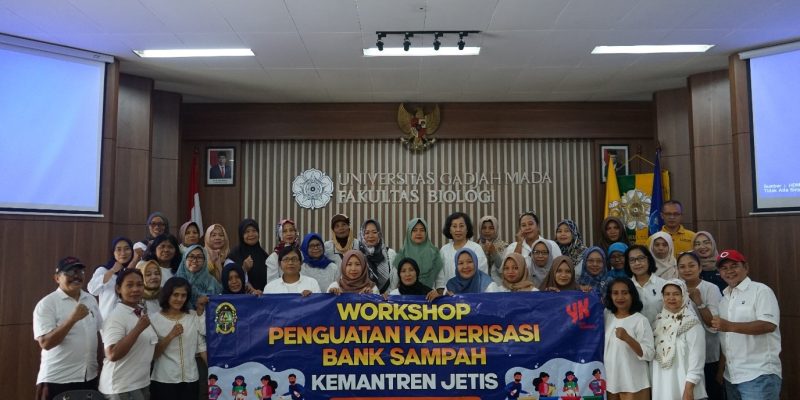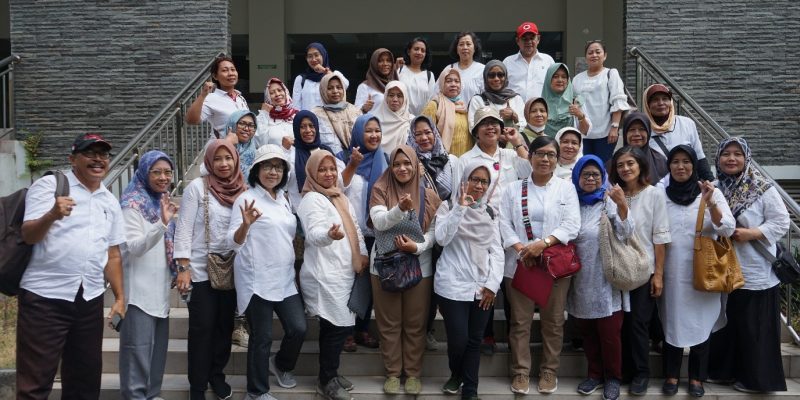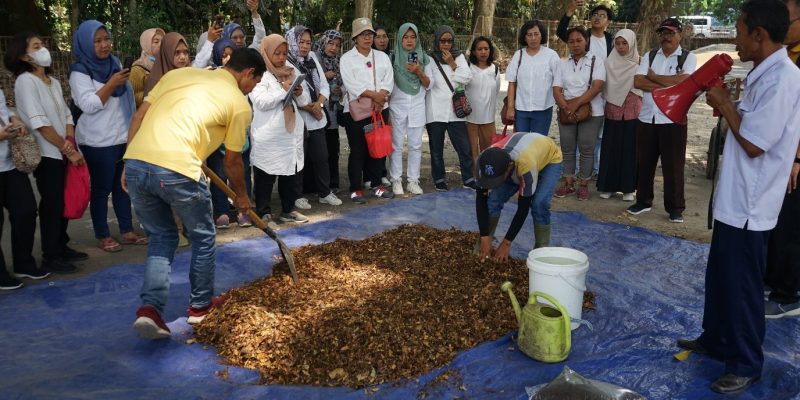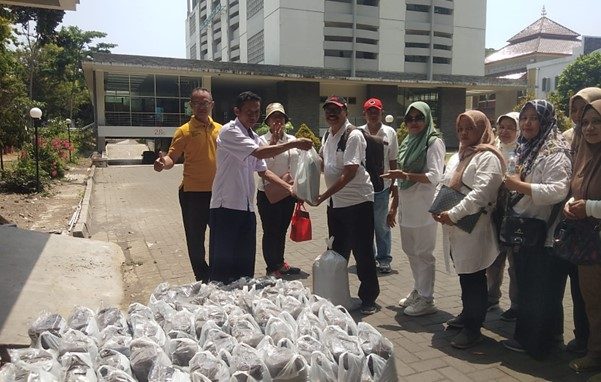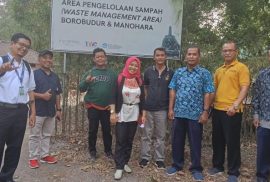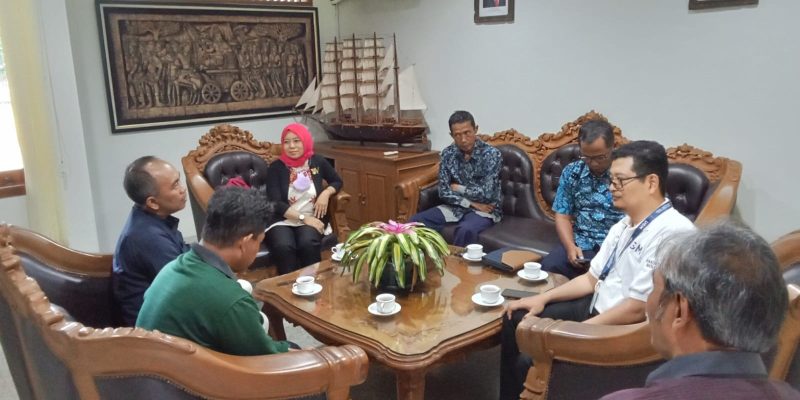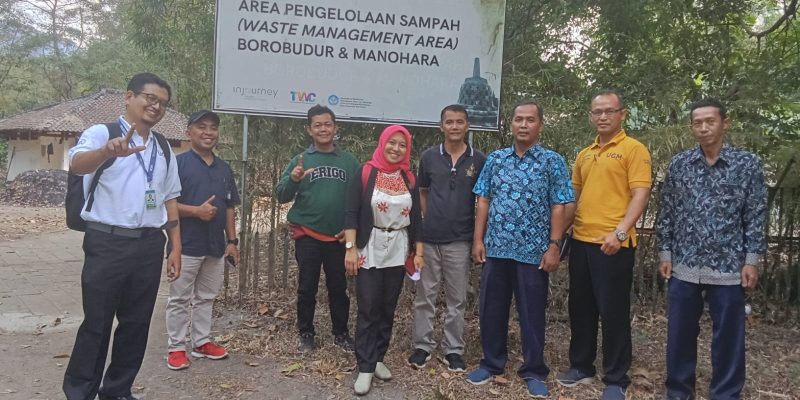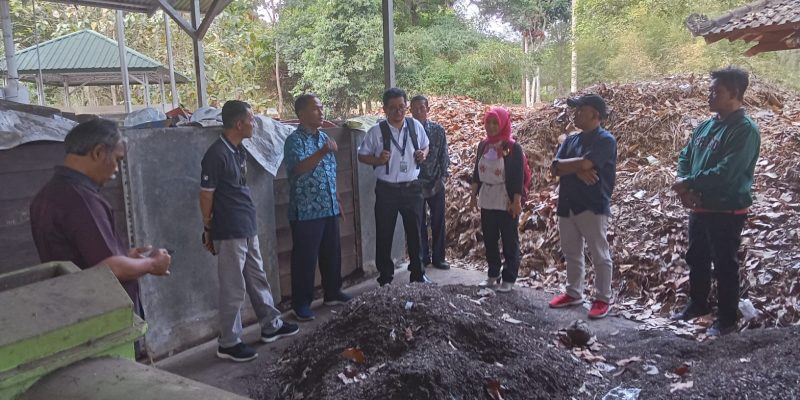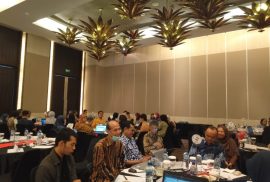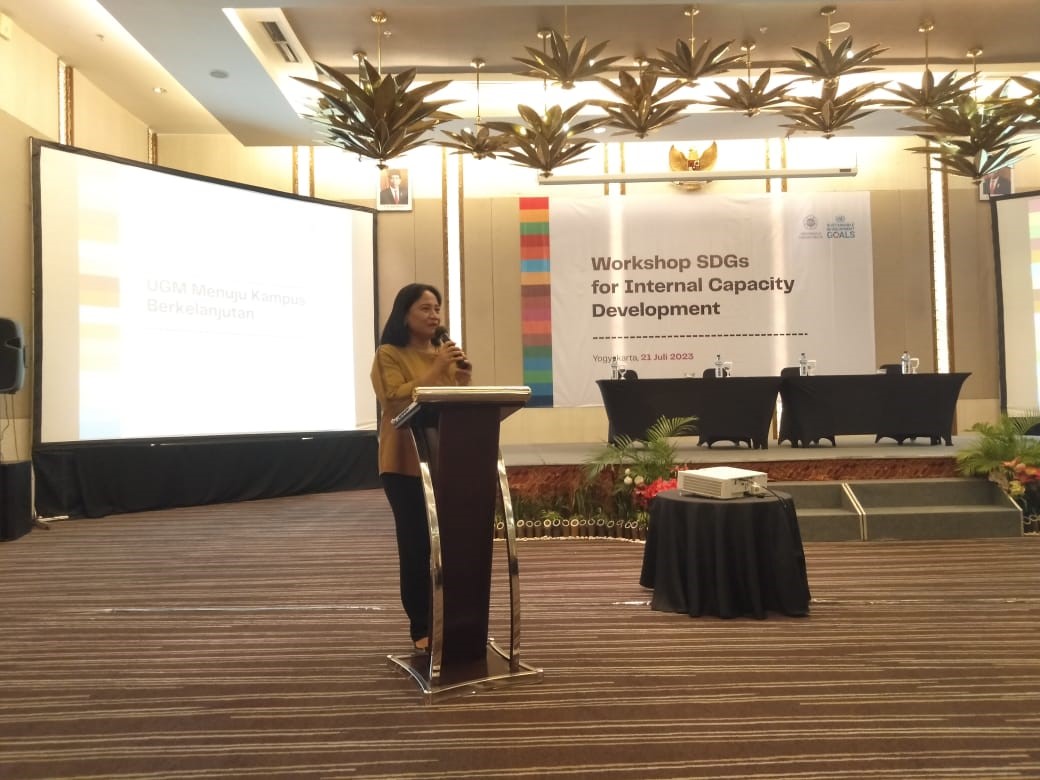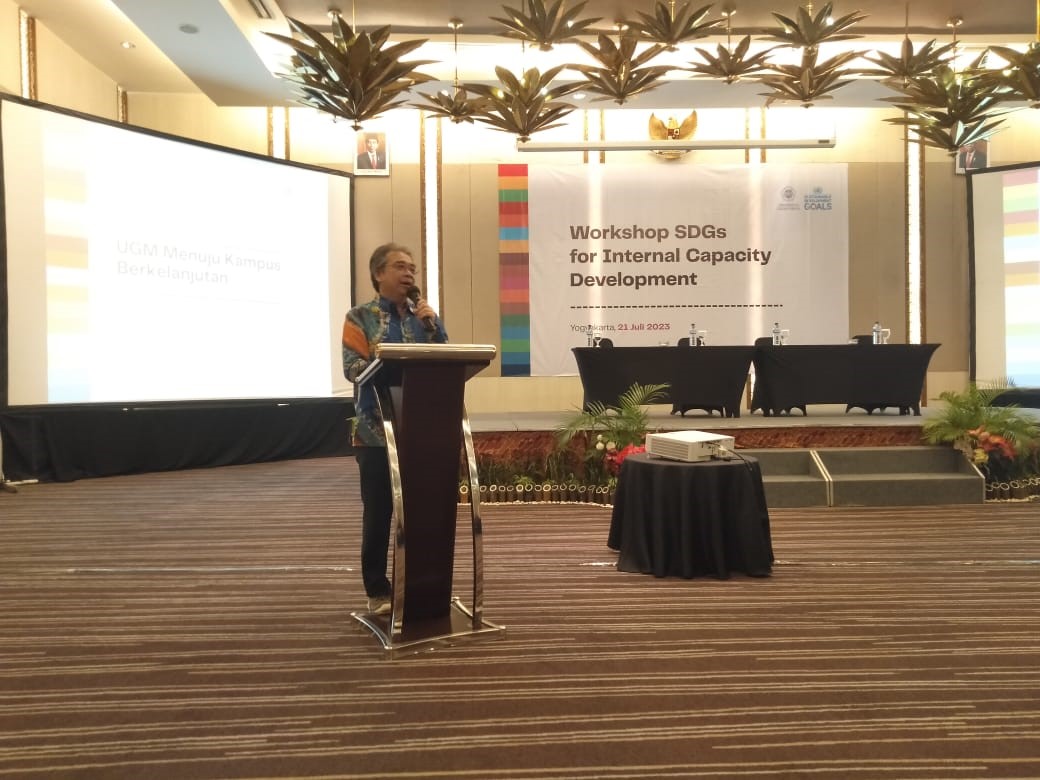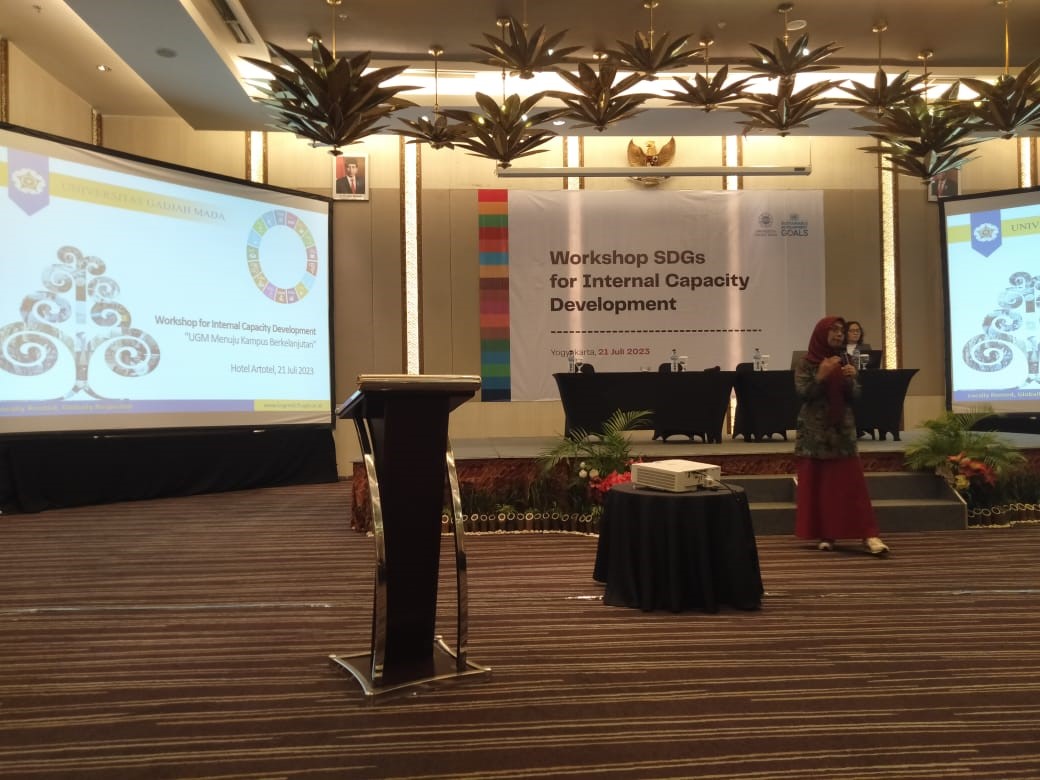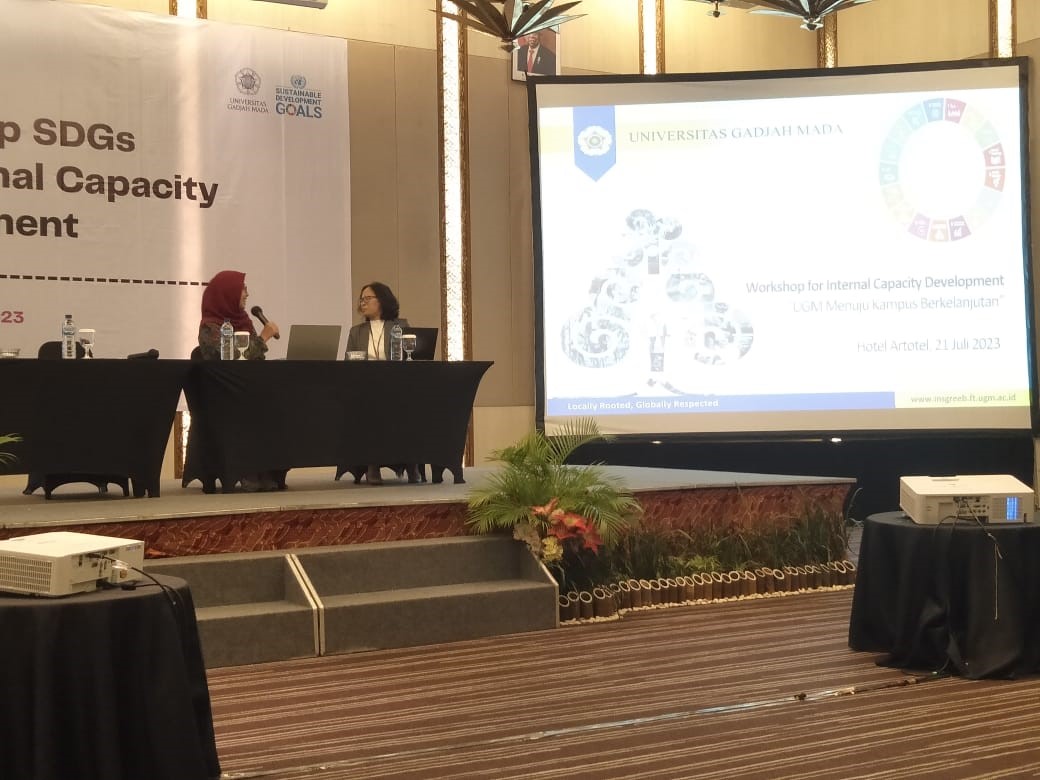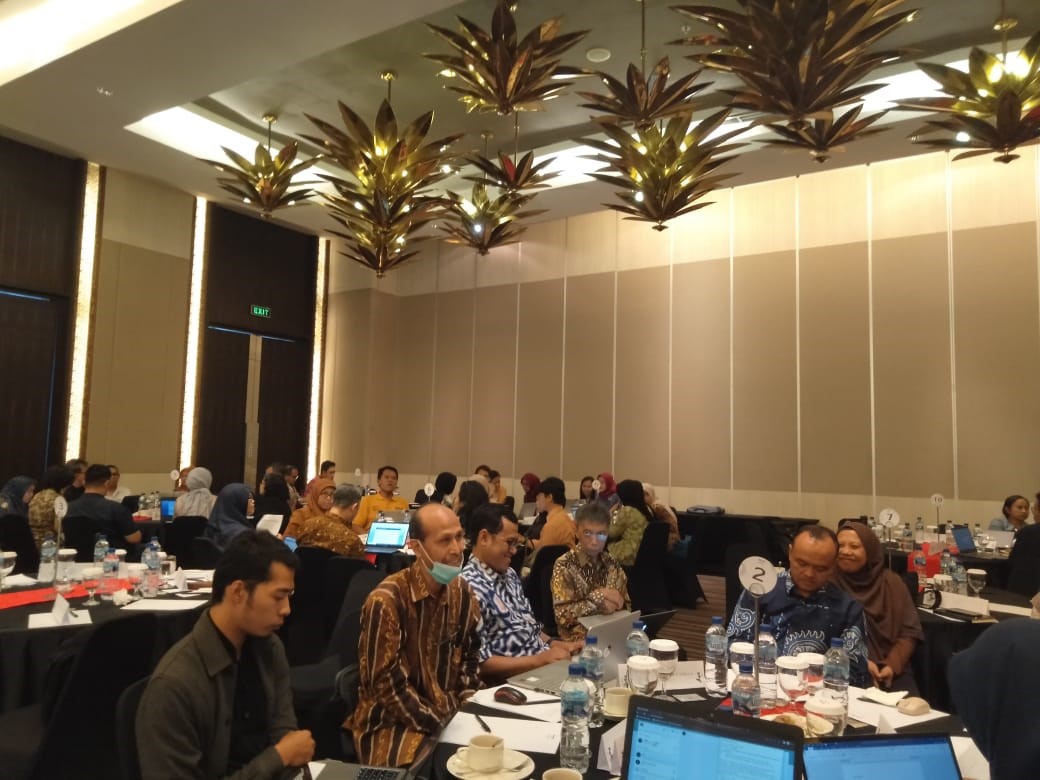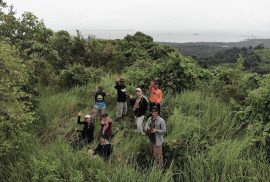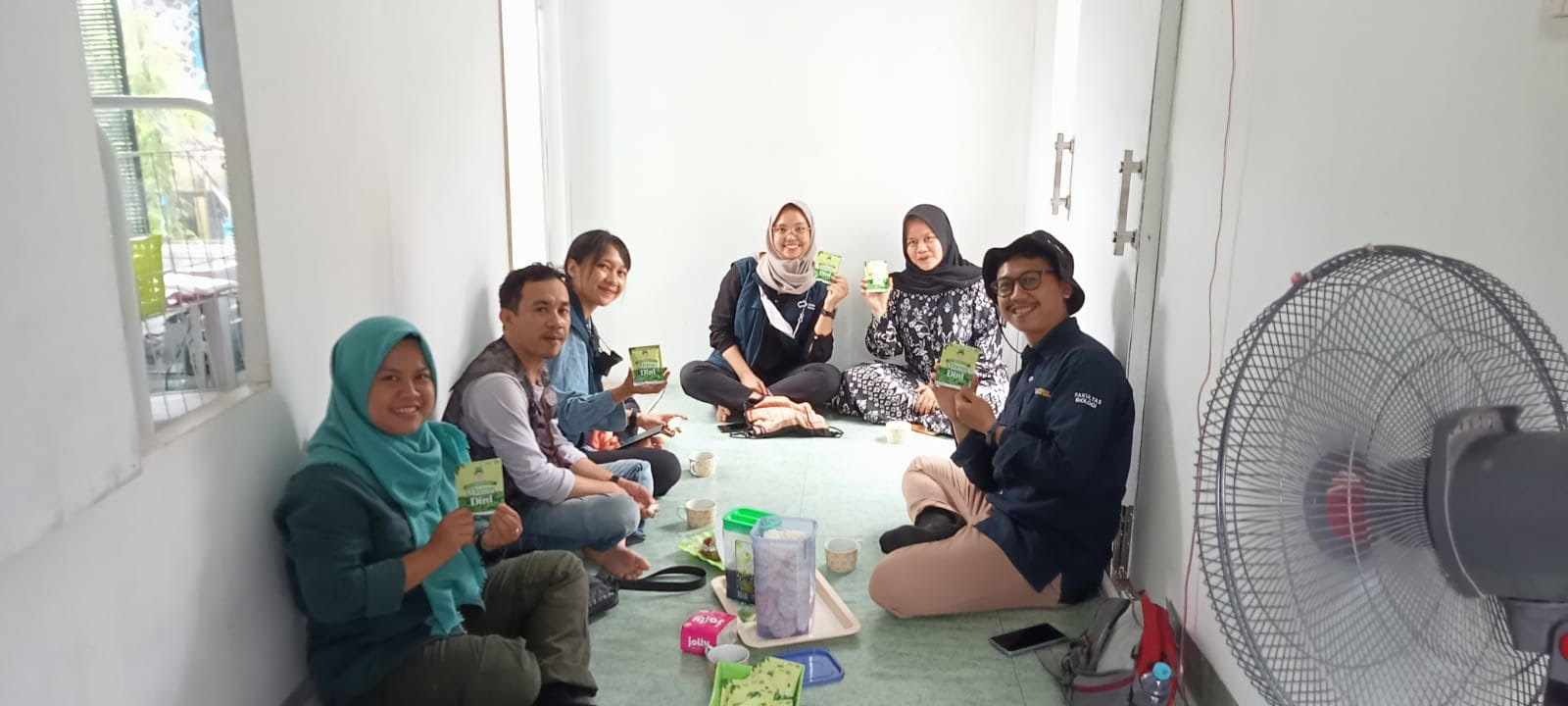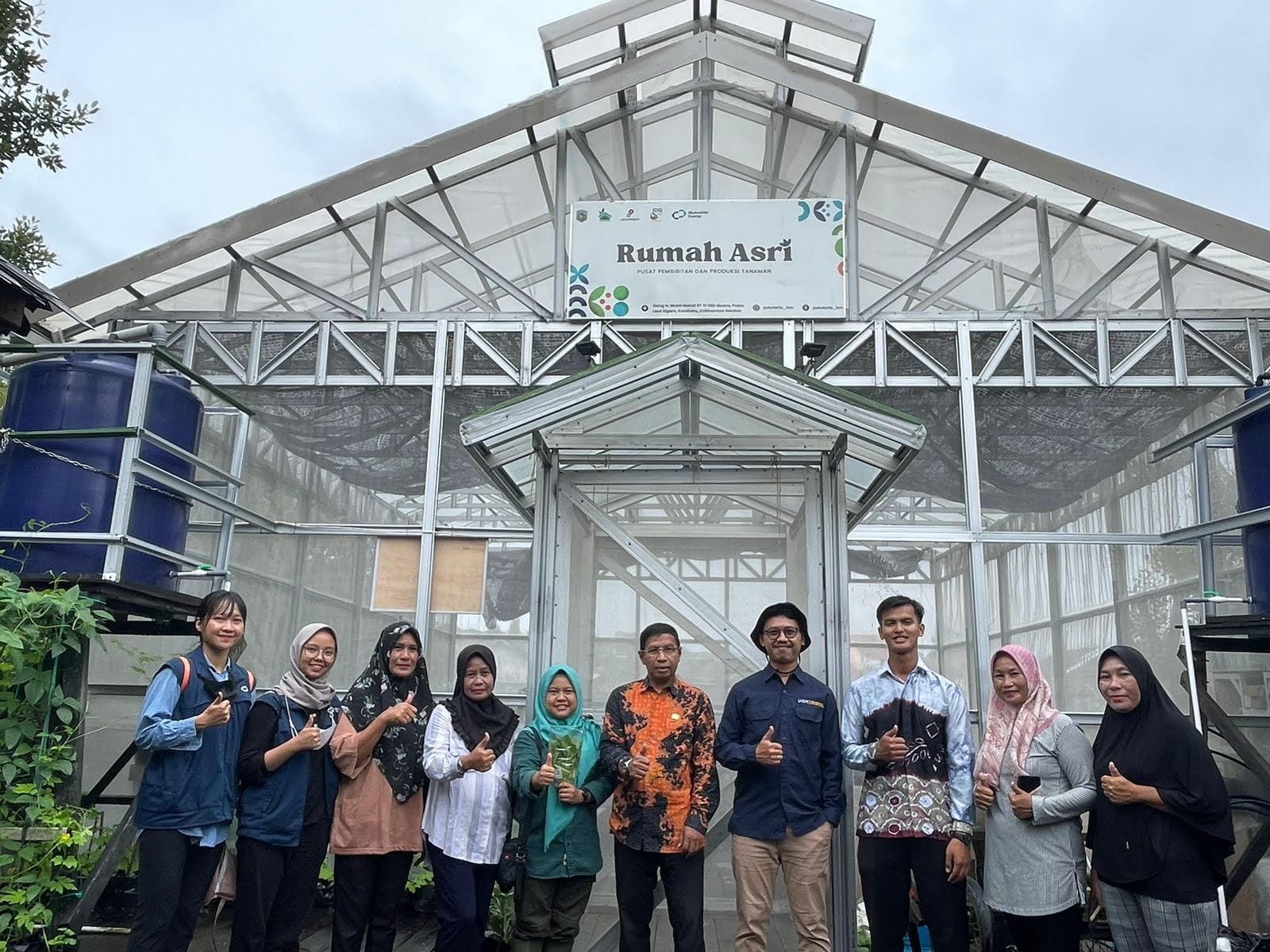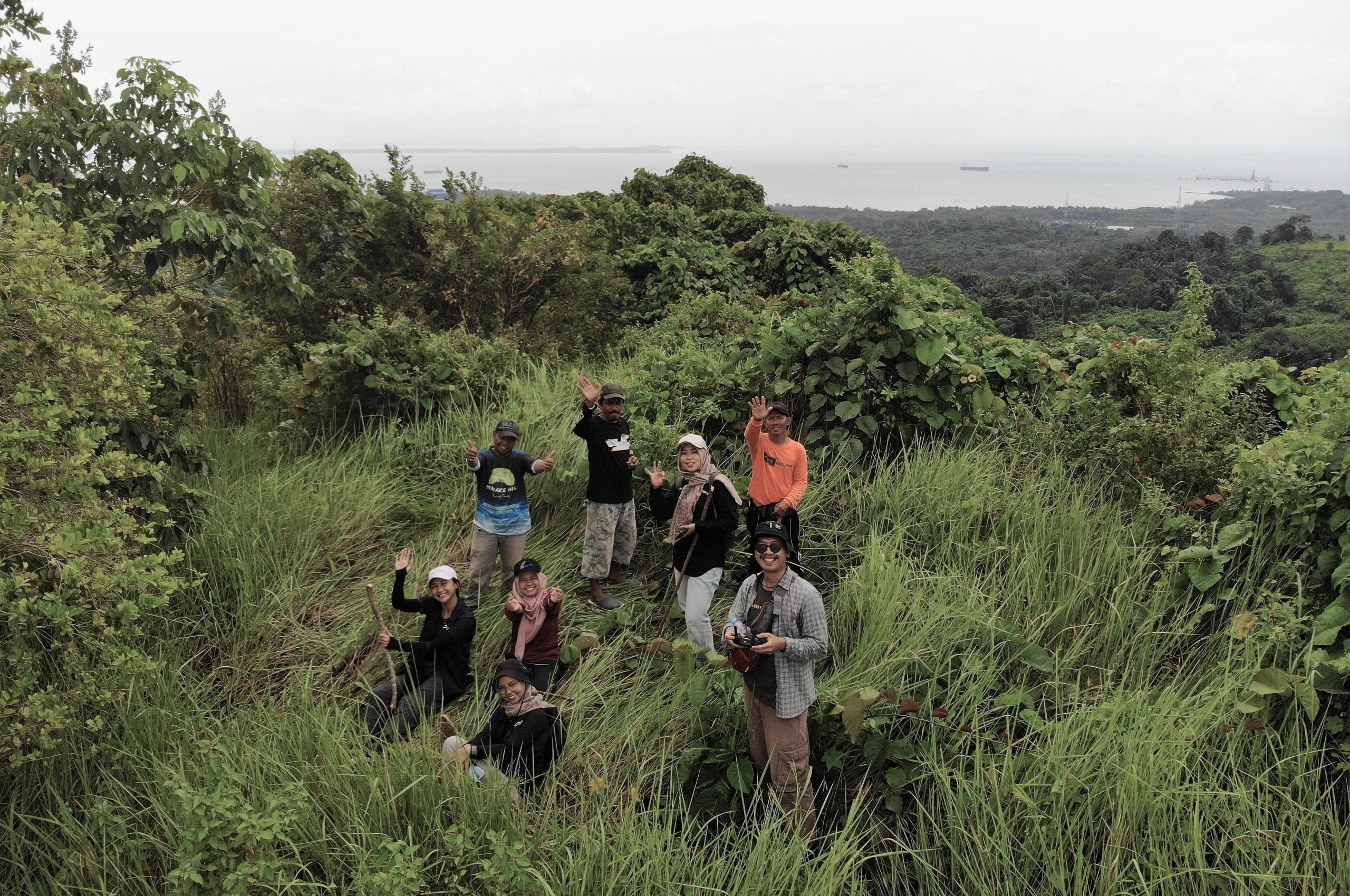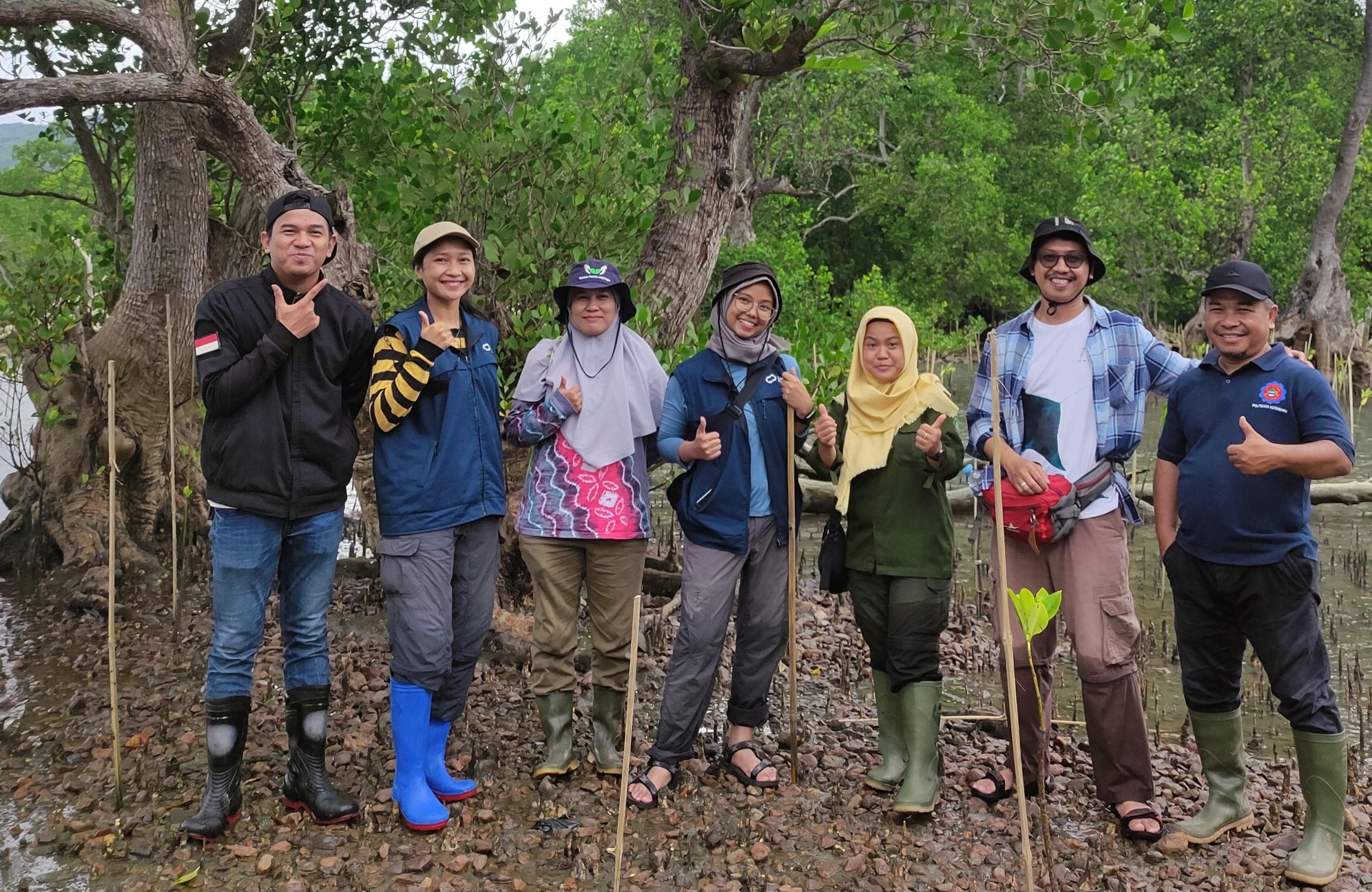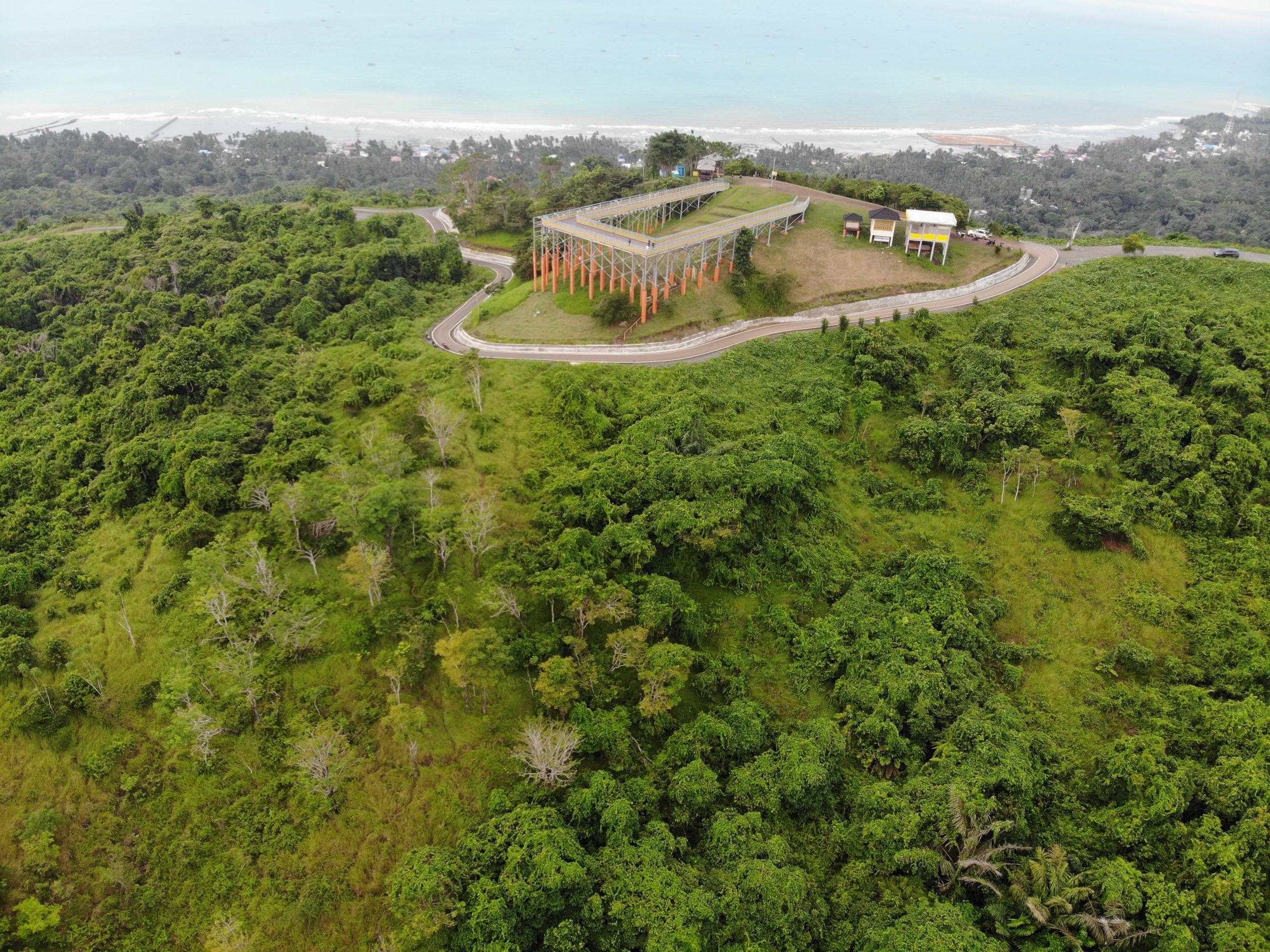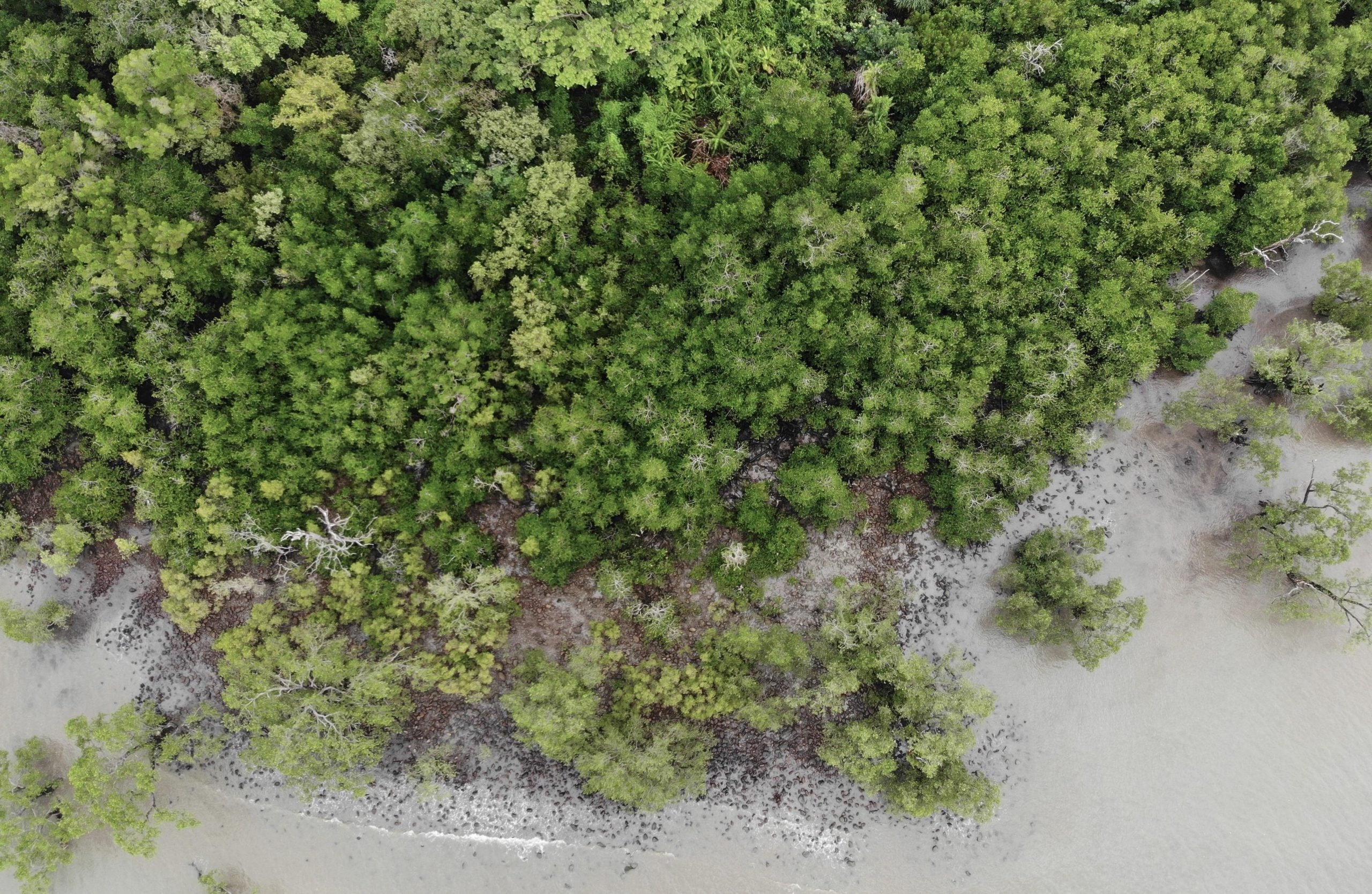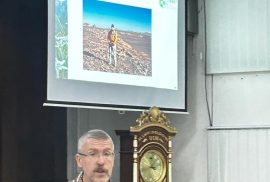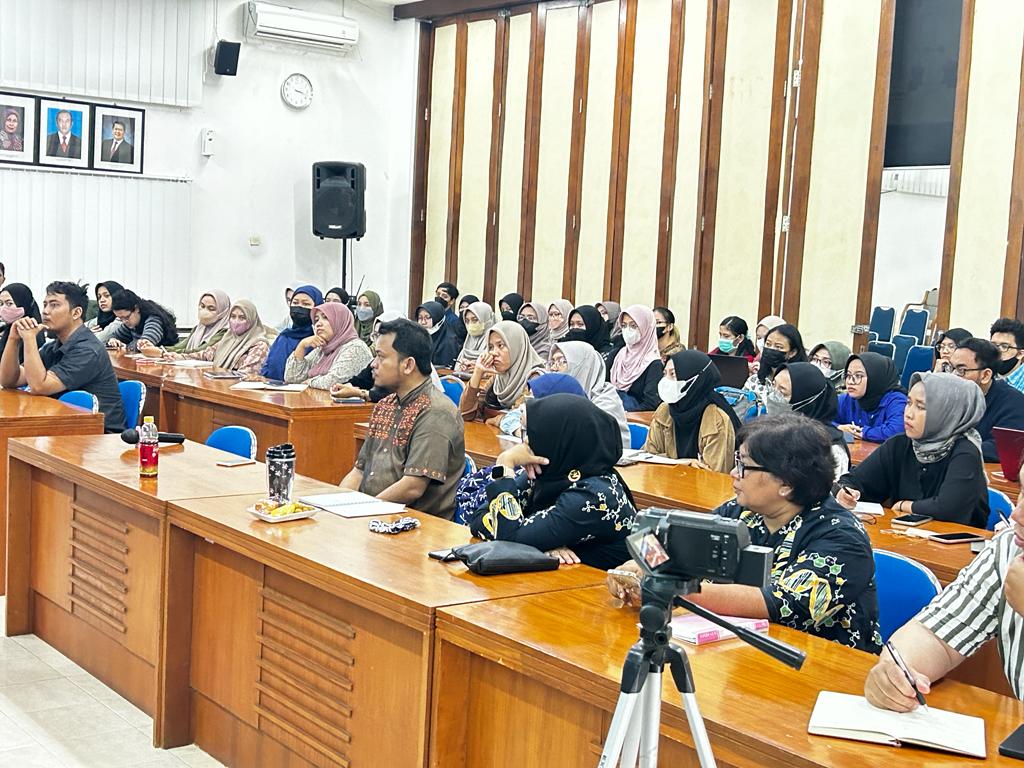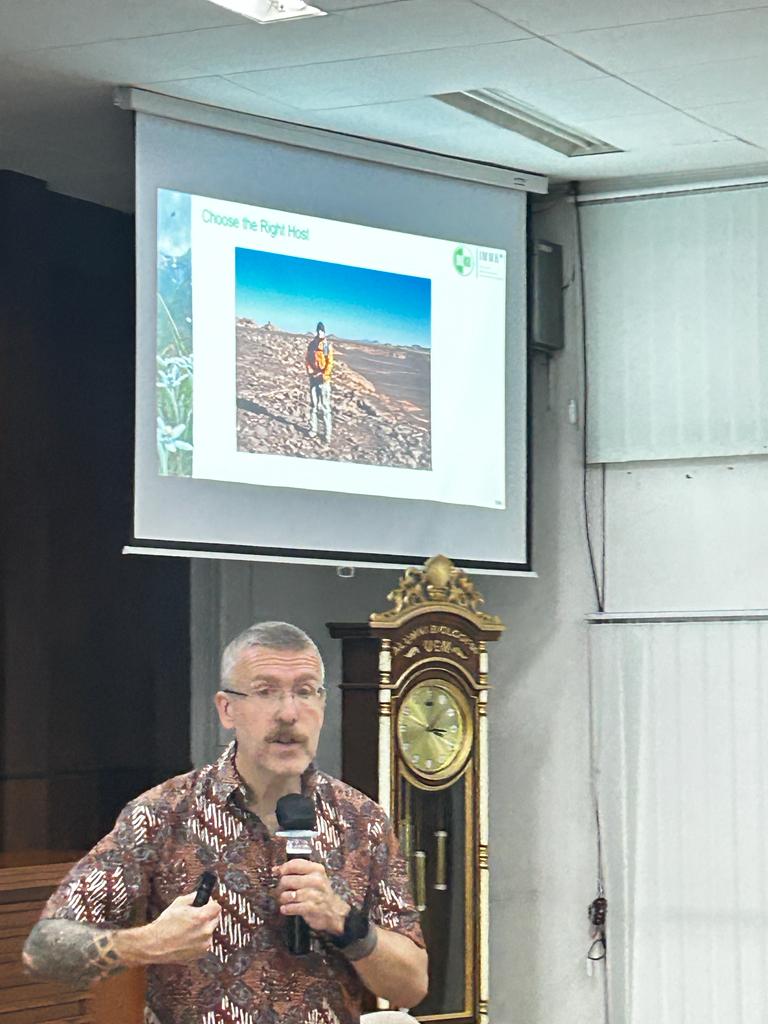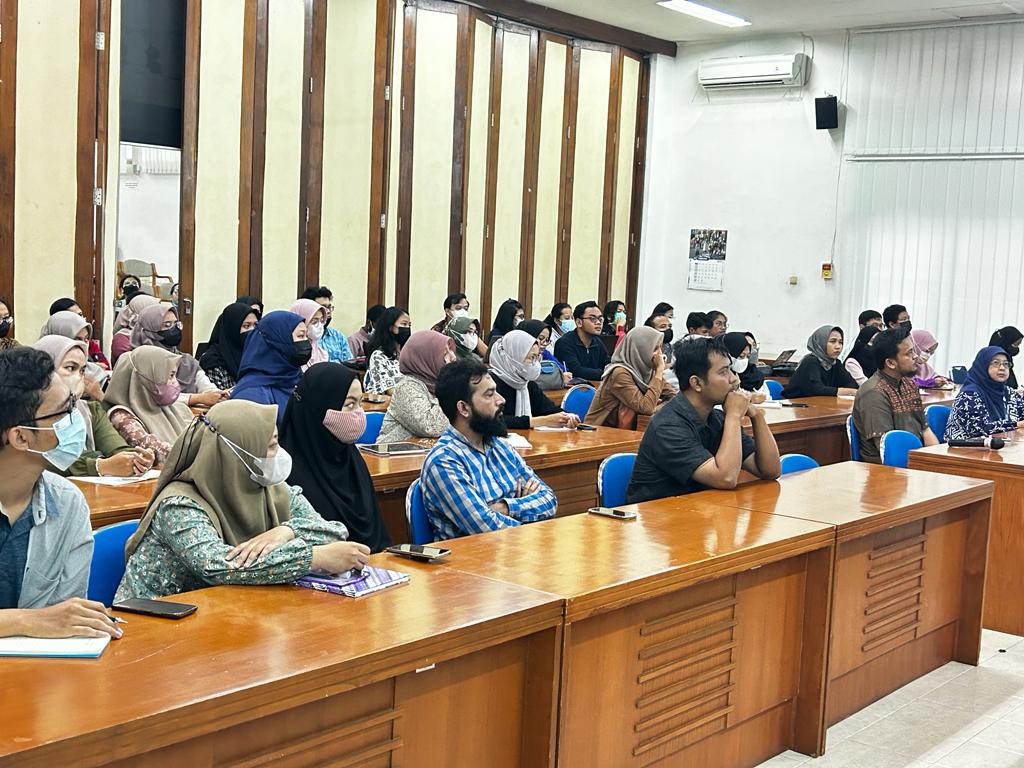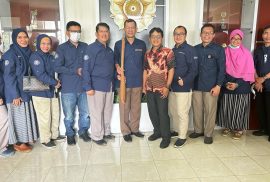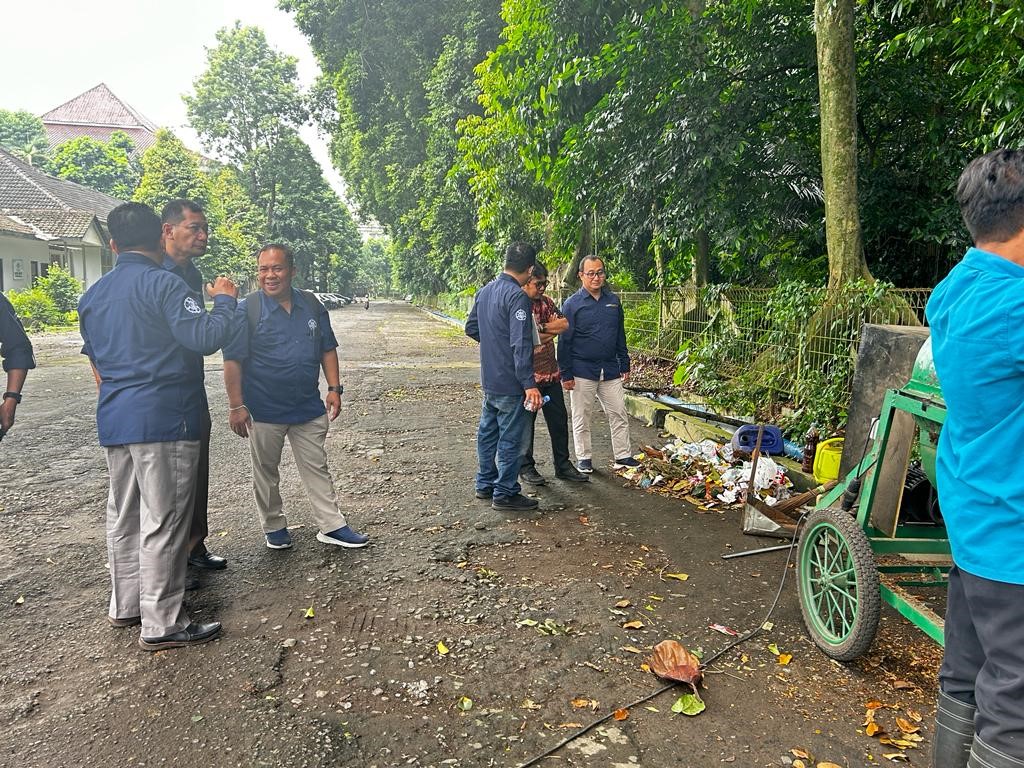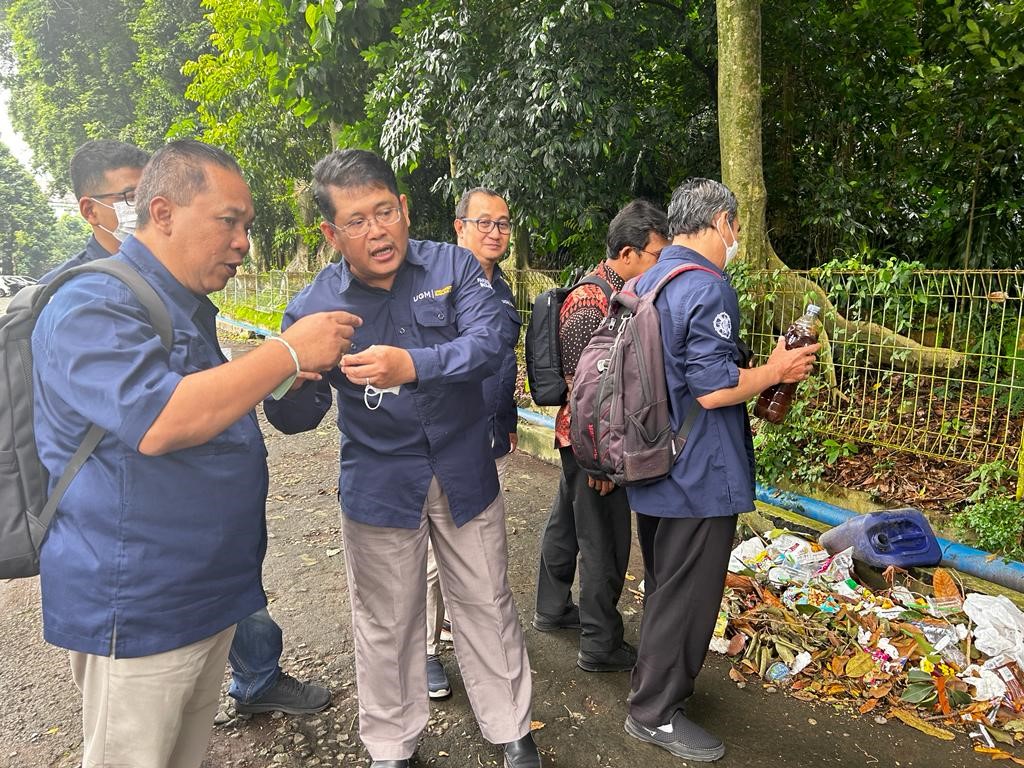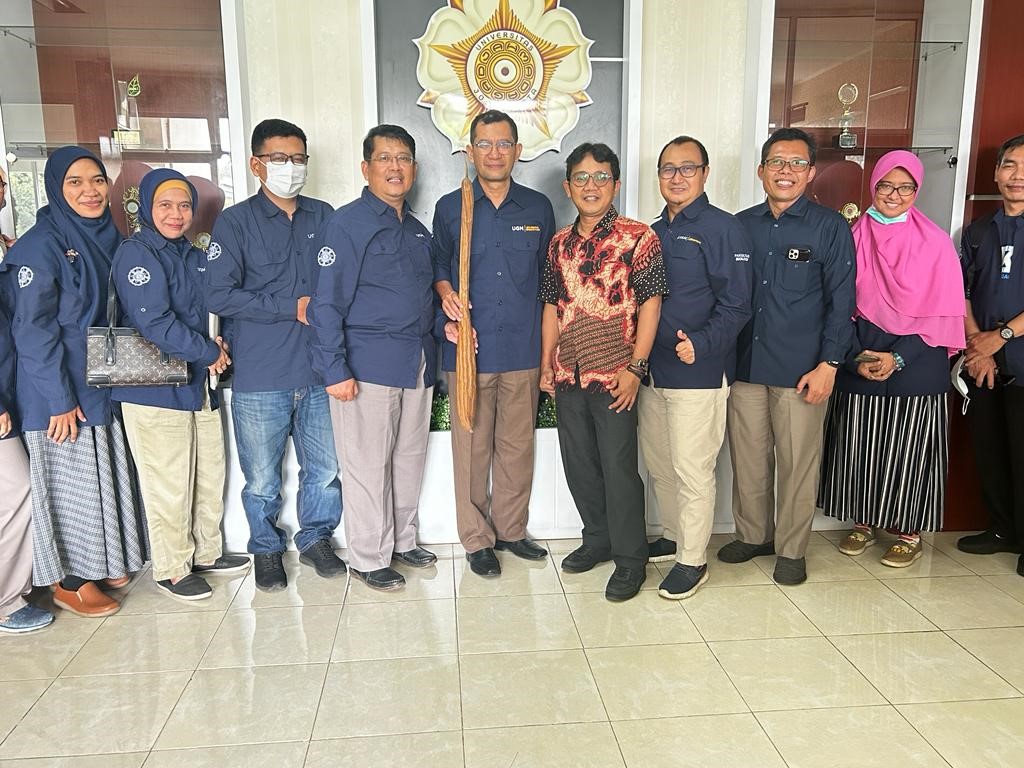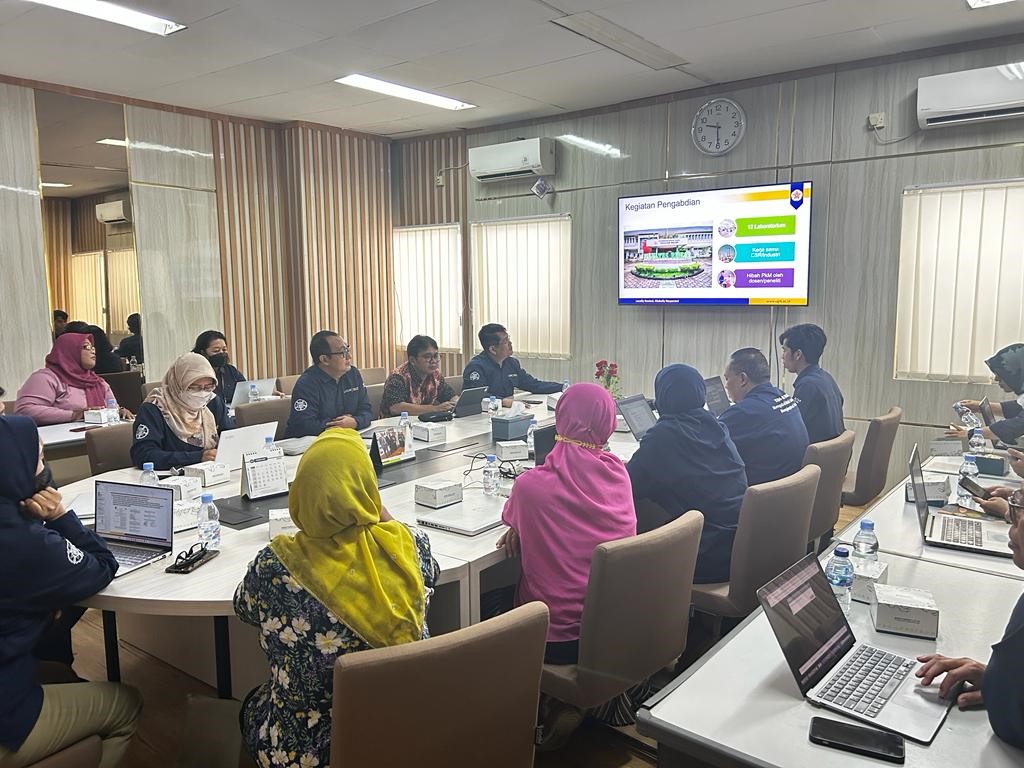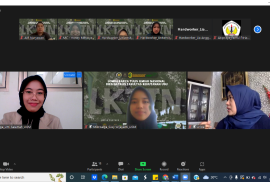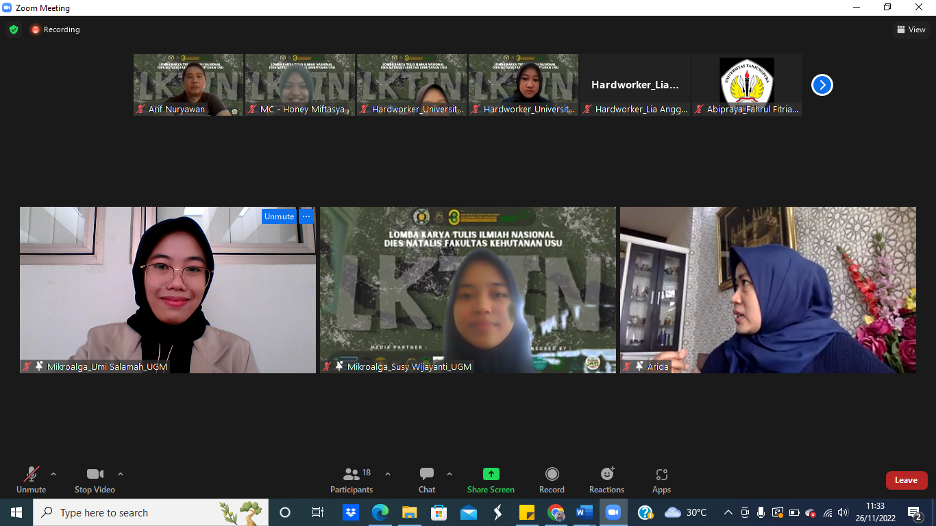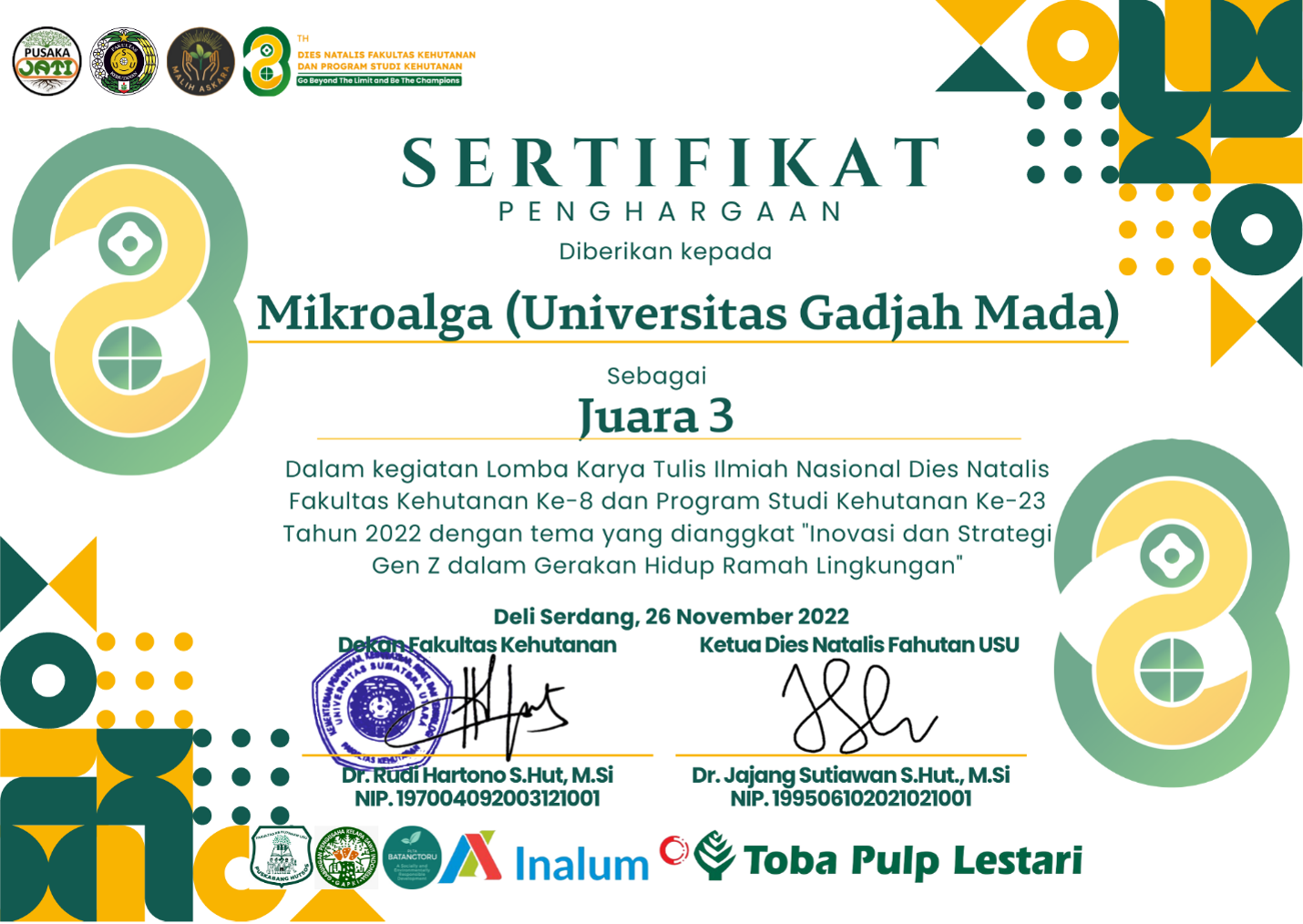SDG 12 : Influence Responsible Consumption and Production
YOGYAKARTA, INDONESIA — February 19, 2024 — A team of lecturers led by a lecturer from the Faculty of Biology at Universitas Gadjah Mada (UGM) held an engaging Focus Group Discussion (FGD) with millennial farmers from Kalurahan Karangmojo, Kapanewon Karangmojo, Gunungkidul Regency. This event is part of the Faculty of Biology’s initiative to encourage dialogue and collaboration between the academic world and field practitioners to enhance sustainable agriculture.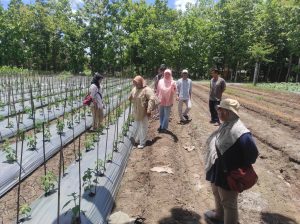
The FGD was held on February 18, 2024, in the meeting room of the Agricultural Extension Center of Kapanewon Karangmojo. The participating millennial farmers represented various backgrounds and experiences in agriculture, ranging from organic farmers to advanced technology farmers. They shared ideas, experiences, and challenges they face in running agricultural businesses in the modern era. The team of lecturers facilitating this FGD was an interdisciplinary inter-faculty team, including members from the Faculty of Biology (Zuliyati Rohmah, S.Si., M.Si., Ph.D. Eng., and Ludmilla Fitri Untari, S.Si., M.Si.), the Faculty of Mathematics and Natural Sciences (Umi Mahnuna Hanung, S.Si., M.Si.), and the Faculty of Pharmacy (Dr. Cintya Nurul Apsari, S.T.P., M.Si.).
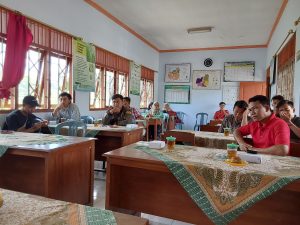 The discussions held during the FGD and field visits covered various topics, including the use of technology in agriculture, organic farming practices, natural resource management, and marketing strategies for agricultural products. The results of these discussions will form the basis for developing more relevant and responsive educational, research, and community service programs tailored to the needs of millennial farmers.
The discussions held during the FGD and field visits covered various topics, including the use of technology in agriculture, organic farming practices, natural resource management, and marketing strategies for agricultural products. The results of these discussions will form the basis for developing more relevant and responsive educational, research, and community service programs tailored to the needs of millennial farmers.
The Faculty of Biology UGM hopes that this FGD will be the beginning of a sustainable partnership between the university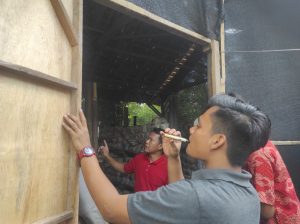 and millennial farmers, bringing tangible positive impacts to the advancement of the agricultural sector in Indonesia. This activity is closely related to several Sustainable Development Goals (SDGs) adopted by the United Nations. The dialogue and collaboration between the Faculty of Biology UGM and millennial farmers can increase farmers’ productivity and income (SDG 1: No Poverty) and support sustainable agriculture that enhances food security and nutrition (SDG 2: Zero Hunger). This initiative also develops more relevant educational programs for millennial farmers (SDG 4: Quality Education), supports economic growth and job creation in the agricultural sector (SDG 8: Decent Work and Economic Growth), and encourages innovation and modernization of agricultural practices (SDG 9: Industry, Innovation, and Infrastructure). The focus on organic farming practices and natural resource management supports sustainable production and consumption (SDG 12: Responsible Consumption and Production), and the sustainable agriculture discussed in the FGD contributes to climate change mitigation (SDG 13: Climate Action). Furthermore, the collaboration between the Faculty of Biology UGM and millennial farmers is a concrete example of partnerships that support the achievement of sustainable development goals (SDG 17: Partnerships for the Goals).
and millennial farmers, bringing tangible positive impacts to the advancement of the agricultural sector in Indonesia. This activity is closely related to several Sustainable Development Goals (SDGs) adopted by the United Nations. The dialogue and collaboration between the Faculty of Biology UGM and millennial farmers can increase farmers’ productivity and income (SDG 1: No Poverty) and support sustainable agriculture that enhances food security and nutrition (SDG 2: Zero Hunger). This initiative also develops more relevant educational programs for millennial farmers (SDG 4: Quality Education), supports economic growth and job creation in the agricultural sector (SDG 8: Decent Work and Economic Growth), and encourages innovation and modernization of agricultural practices (SDG 9: Industry, Innovation, and Infrastructure). The focus on organic farming practices and natural resource management supports sustainable production and consumption (SDG 12: Responsible Consumption and Production), and the sustainable agriculture discussed in the FGD contributes to climate change mitigation (SDG 13: Climate Action). Furthermore, the collaboration between the Faculty of Biology UGM and millennial farmers is a concrete example of partnerships that support the achievement of sustainable development goals (SDG 17: Partnerships for the Goals).
Friday, July 21st 2023, Universitas Gadjah Mada held a Workshop on SDGs for Internal Capacity Development: UGM Towards a Sustainable Campus at the Lotus Ballroom, Artotel Suites Bianti, Yogyakarta. The event was attended by representatives from various UGM working units including from Faculty of Biology represented by Mukhlis Jamal Musa Holle, S.Sc., M.Env.Sc., D.Phil. The event began with remarks by the Vice Chancellor for Education and Teaching Universitas Gadjah Mada, Prof. Dr. Wening Udasmoro, S.S., M. Hum., DEA. Prof. Wening explained the importance of the contribution of universities and their academic community in realizing the SDGs (Sustainable Development Goals) which have been promoted by the United Nations since 2015. Anticipation needs to be done to ensure that life in the future will avoid crises including the food crisis, extreme climate change and so on. UGM in the management of the SDGs is also got 2nd ranked in Indonesia and will continue to be developed. Prof. Wening also explained the importance of active data collection and publication to media so that activities carried out at UGM can be exposed to the wider community.
Further remarks were given by the Head of Quality and Reputation Assurance of Universitas Gadjah Mada, Dr. L. Hartanto Nugroho. He explained that contributions for SDGs can be made in small ways and small changes can have a big impact. A simple example in terms of segregating waste in a university environment, it must be carried out systematically and massively and involve all components and the academic community at the university.
The workshop continued with a general presentation by Prof. Dr. Puji Astuti, S.Si., M.Sc., Apt. and Ir. Sentagi Sesotya Utami, St., M.Sc., Ph.D. They explained that the most important aspects of the 17 SDGs are the environment and human sustainability. University ranking in terms of SDGs is not the main thing to achieve, but the ranking is a form of measurement for achievements or activities that have been carried out. UGM also supports sustainability in university governance from the aspects of ecosystems and the environment as well as human sustainability. This can be seen in the policies and regulations issued by UGM. The principles of sustainability or campus sustainability applied at UGM include energy conservation, waste management, water conservation, and eco-friendly transportation. In addition, the achievements of the activities carried out need to be balanced with massive publications so that they can be heard outside the university.
The workshop continued with Forum Group Discussions (FGDs) where participants were divided into 4 categories: Medicines, Agro and Life Science, Social Science, and Art and Humanities. Discussions focused on implementing the SDGs in their respective work units, SWOT analysis, plans for follow-up activities and plans for publication of SDGs achievements. In the discussion, representatives of the Faculty of Biology who included in Agro and Life Science category explained what activities had taken place at the Faculty of Biology and presentation ideas regarding the implementation of SDG No. 2 (Zero Hunger) and SDG No. 12 (Responsible Consumption and Production). Some of the components of the discussion include how programs play a role in overcoming food insecurity for the academic community and the general public, interventions for dealing with food insecurity, publication of sustainability reports, waste management, to how each work unit can represent research or activities carried out at the work unit level as part of the SDGs.
The workshop ended with closing and a reminder of how important everyone’s role is in realizing the SDGs, especially at the university level. It is hoped that this activity can be a trigger for the implementation of the SDGs and better publications at Universitas Gadjah Mada.
On 12-15 July 2022, Lecturer at the Faculty of Biology UGM Akbar Reza, M.Sc and Puji Lestari, S. Hut, M.Sc lecturers at the Department of Biology and Veterinary Technology at the UGM Vocational School carried out research and community service activities in Kotabaru, South Kalimantan, particularly Hilir Muara Village and Gedambaan Village. The activity which is a cross-sectoral collaboration between the Social Development Studies Center (SODEC) UGM, Faculty of Biology UGM, PT. Mubadala Energy, Kotabaru Polytechnic and the local government have been implementing this since 2020. Activities in Hilir Muara Village focus on empowering coastal communities with main assistance to Pokdarlis (Environmental Awareness Group), UMKM (Hilir Muara Cinta Bumi), and Waste Bank. Some of the programs initiated include greenhouses establishment for plants with economic value and native of Kalimantan, optimizing composters, including initiating collaboration with BUMDES and assisting BPOM’s licensing process for UMKM. These programs were initiated out of concern for the sustainability of coastal ecosystems which actually provide high ecosystem services, especially in the face of the climate crisis. Furthermore, the waste problem is also a problem for coastal areas which, apart from reducing aesthetics, also has the potential to cause long-term health problems.
Activities continued in Gedambaan Village which focused on studying coastal biodiversity. On this occasion, Akbar Reza, M.Sc with an expertise on ecology and conservation, and Puji Lestari, S.Hut, M.Sc with an expertise on Forestry were responsible for justifying techniques and locations for planting mangroves, determining permanent plots (PUP), and monitoring methods as an initiation for long-term monitoring. In its implementation, this activity was intensely assisted by Fitra Nofra, S.Si and Gema Starliantri, S.Hut as the Biodiversity Officer of PT. Mubadala Energy, in collaboration with the Kotabaru Polytechnic and the Gedambaan Village Government as the main actors. On the same occasion, planning was also carried out for a program for planting typical Kalimantan plants in collaboration with the Pulau Laut Sebuku in the Environmental Services Block in the Bukit Mamake area. Furthermore, in the long term these programs are expected to have economic value that can support the lives of local communities.
In general, these research activities and empowerment programs simultaneously support national programs such as PROKLIM Village, climate change adaptation, and local community-based blue carbon ecosystem preservation. It is hoped that the programs implemented will actually be able to help coastal communities as vulnerable to climate change. In addition, the programs are expected to be able to bring about change, both from an environmental and economic perspective
Prof. Michael Sauer, Deputy Head of The Institute of Microbiology and Microbial Biotechnology, BOKU University, Vienna, Austria gave a Guest Lecture to students, lecturers and researchers at the Auditorium of the Faculty of Biology, UGM. Topics presented were about bioprocess and biorefinery. The guest lecture was opened by the Vice Dean for Research and Community Service and Alumni, Dr. Eko Agus Suyono who is also the moderator on the agenda. In the guest lecture, it was conveyed that the world is experiencing a sustainability problem. One of the main causes is environmental pollution, especially from plastic waste.
Indonesia, which is a mega-biodiversity country, has natural wealth potential that can be utilized as a source of raw materials for bioplastic production. Organisms such as bacteria and fungi are sources of bioplastic microorganisms that are widely found in Indonesia. However, the research and development in this matter is hardly enough to get attention.
Guest lectures that invite speakers from outside UGM are routine activities held by the Faculty of Biology UGM. With these activities, students will gain insight and material from experts related to the world of biology. Meanwhile, the partner network of the Faculty of Biology UGM will be accelerated and institutional recognition will also increase.
On Wednesday 8 February 2023, the Faculty of Biology UGM received a visit from the Vice Chancellor for Student Affairs, Community Service, and UGM Alumni, Dr. Arie Sujito, S.Sos., M.Sc., UGM Director of Community Service, Dr. dr. Rustamaji, M.Kes., and Director Secretary of Community Service UGM, Dr. Djarot Heru Santosa, M.Hum. The visit began with a discussion on program development in the KPTU Meeting Room of the Faculty of Biology UGM, followed by a tour around the campus of the UGM Faculty of Biology to review the production sites of POC (Liquid Organic Fertilizer) and organic fertilizers produced by the Faculty of Biology.
Dr. Arie Sujito, S.Sos., M.Sc., expressed the importance of community participation around the UGM campus to participate in activities carried out by UGM such as KKN, Research and Community Service. There are 3 very strategic hamlets that are the belt of UGM, namely Sagan hamlet, Blimbingsari hamlet and Terban hamlet. UGM will provide assistance to the community around the UGM campus to be able to supply the needs of UGM and hotels around the UGM campus.
On that occasion, they also discussed the IUP (International Undergraduate Program) program at the Faculty of Biology UGM which has been running and this year there will be the first batch of graduates. The IUP program also provides opportunities for students to take part in KKN activities organized by the university, but in practice there are still some obstacles which yet to be solved, for example the number of credits that must be taken, the time for the KKN to be carried out. Dr. Djarot Heru Santosa, M.Hum., will report and discuss this problem at the university level in order to get the best solution and can be applied to this year’s KKN.
The UGM Faculty of Biology will also play an active role in the management of organic waste generated from the environment around UGM and internally from UGM. The waste will be processed into organic fertilizer and POC which can then be reused by the community around the UGM campus, and can also be sold to earn UGM income.
Biology undergraduate students at Gadjah Mada University made another achievement at the national level by winning 3rd place in the National Scientific Writing Competition. This achievement was achieved by students Susy Wijayanti and Umi Salamah from Biology Class of 2018 under the guidance of Dr. Ardaning Nuriliani, S. Si., M. Kes. This competition is a competition held by the University of North Sumatra with the theme “Gen Z Innovation and Strategy in the Environmentally Friendly Living Movement”. This activity aims to be a forum for channeling student creations & innovations for a healthy generation.
This final activity took place on November 25 2022 online at the University of North Sumatra which was attended by students from universities throughout Indonesia. This competition was carried out in four stages, which were abstract submission, assessment of scientific papers, announcement of the top 10, and the culmination of which was the presentation of the paper in front of the judges.
In this competition the team raised the title “Phytoremediation of Domestic, Industrial and Agricultural Liquid Waste by Photobioreactor-Based Microalgae”. According to the team, the idea was motivated by the high increase in global population, industrialization, and economic progress which had an impact on increasing waste and decreasing water quality. This prompted the team to conduct research to find an efficient method of managing this waste. One of the biological agents that can act as a natural bioremediator for managing waste is microalgae. Hence, the waste becomes safer for the environment.
Team preparation was carried out a week before the online presentation activities by preparing presentation materials and materials. The team regularly practices so that they are able to provide clear and firm explanations of the papers being presented. The team was able to convey ideas and answer all the jury’s questions straightforwardly. They said that this was none other than the result of the team’s hard work and the support of all parties.
With this competition, they really hope to be able to provide encouragement and support for students who are interested in the field of scientific work to convey their best ideas through their intelligence in thinking. In addition, the team also hopes that through this competition it can bring and make the Faculty of Biology and Gadjah Mada University proud in the future.

